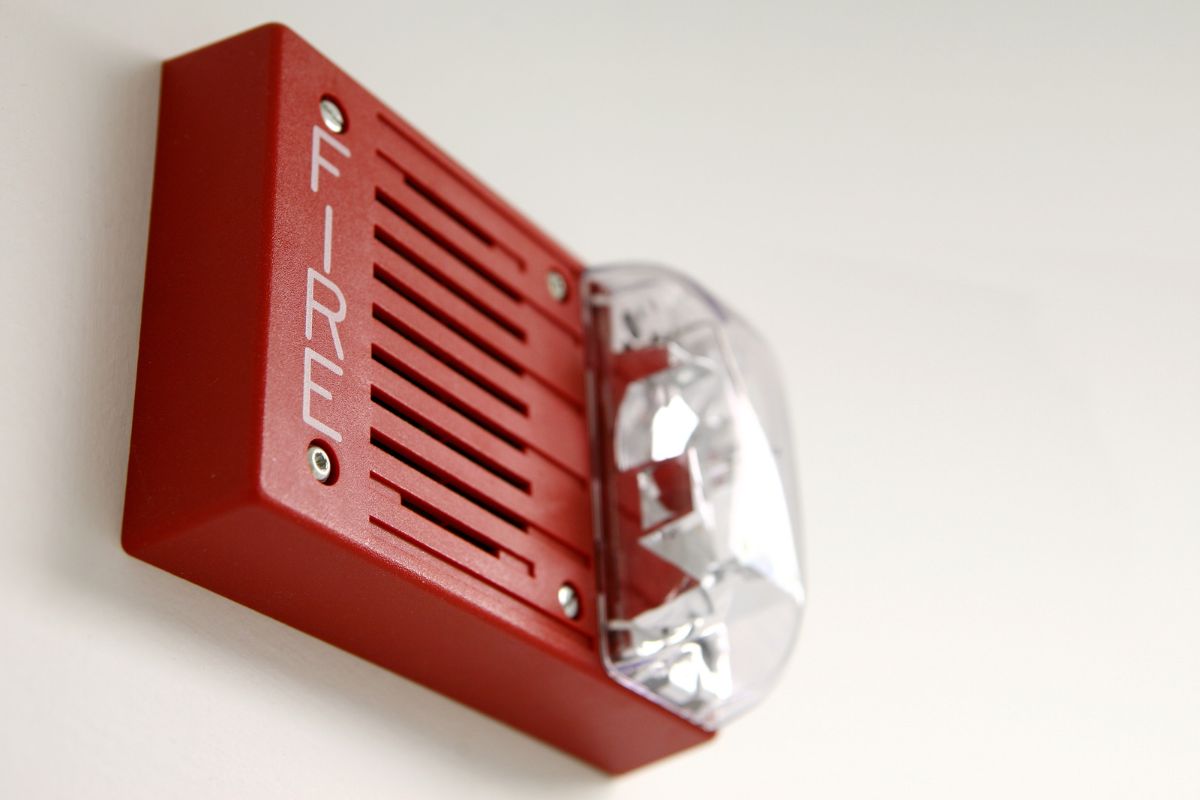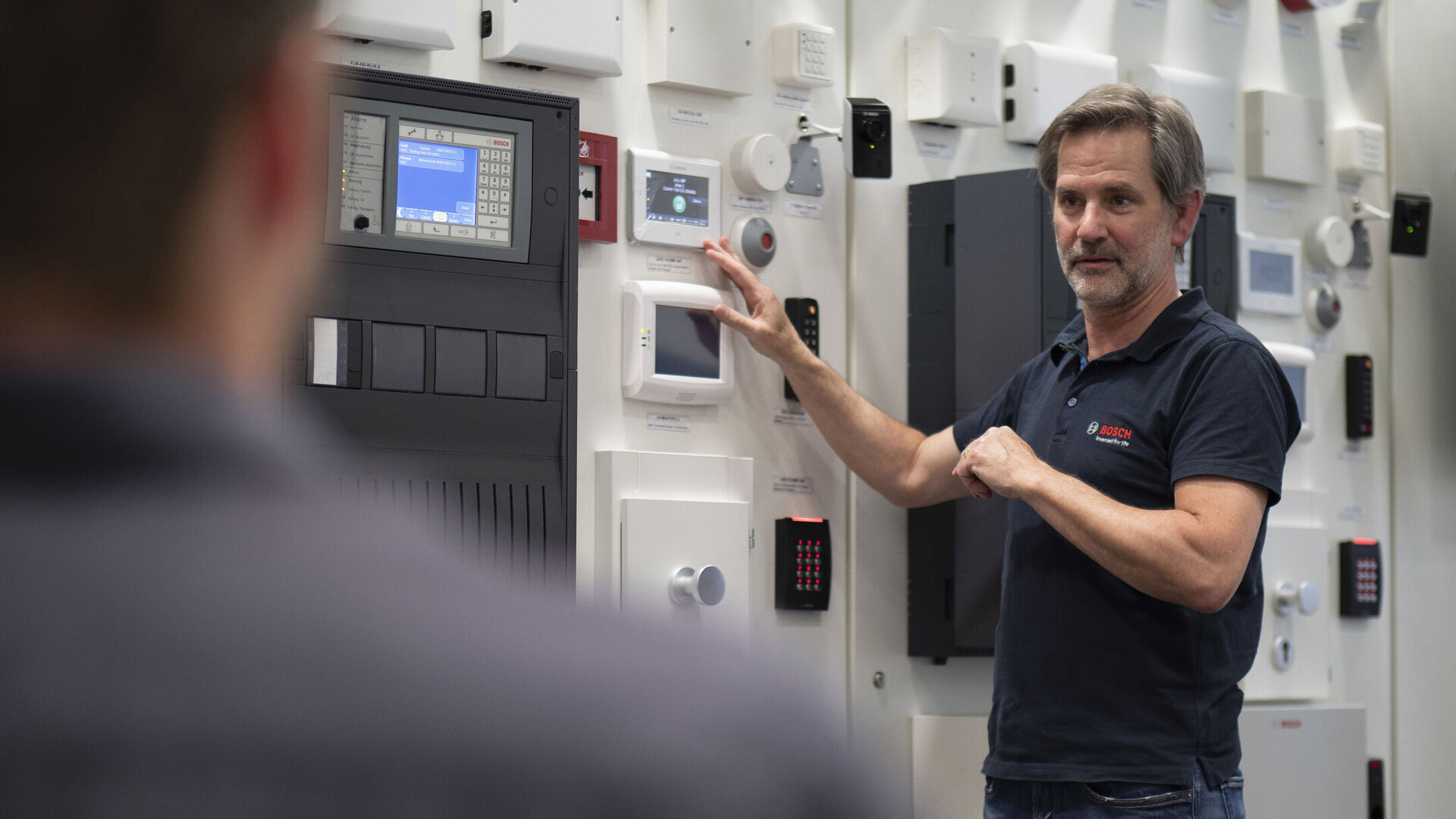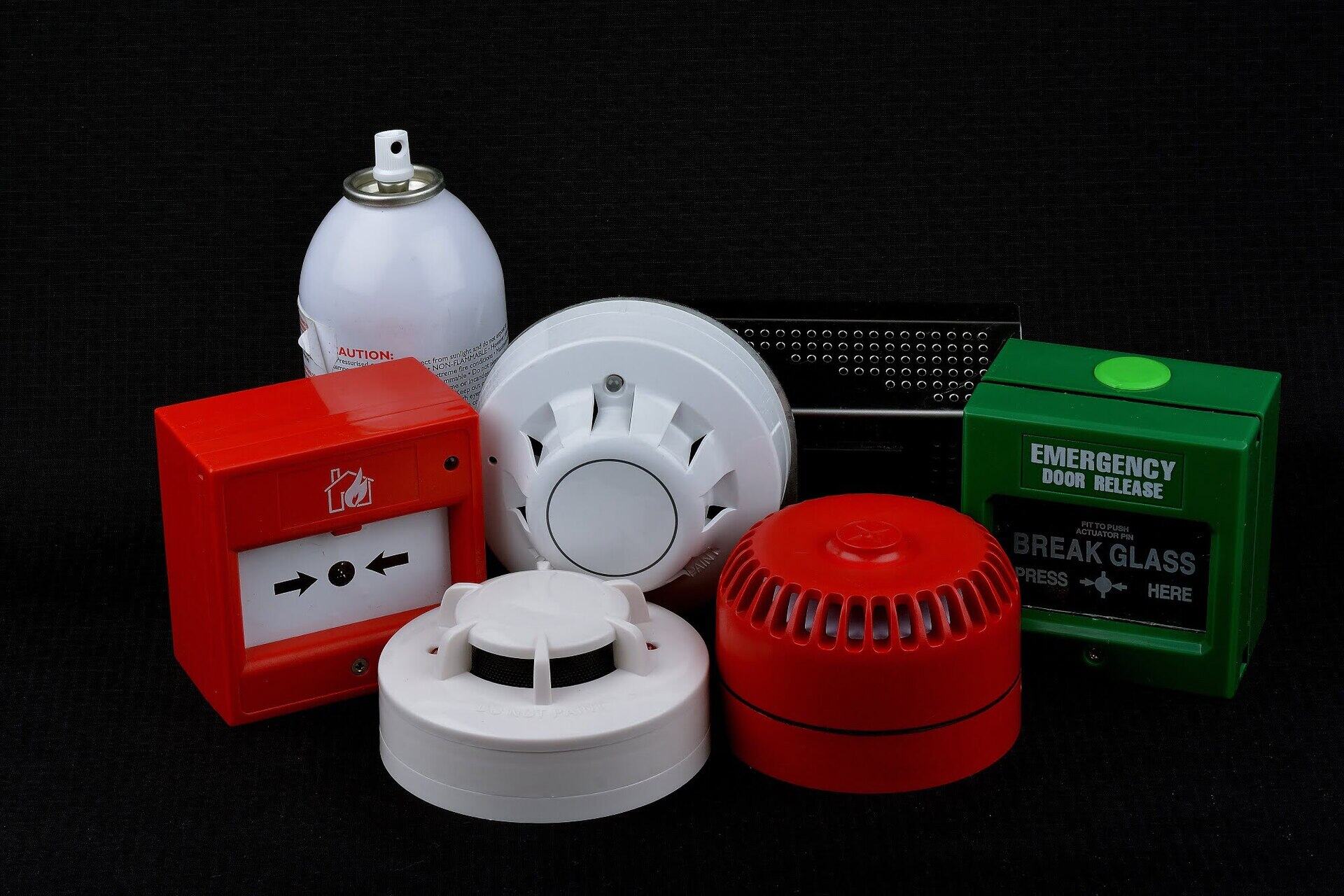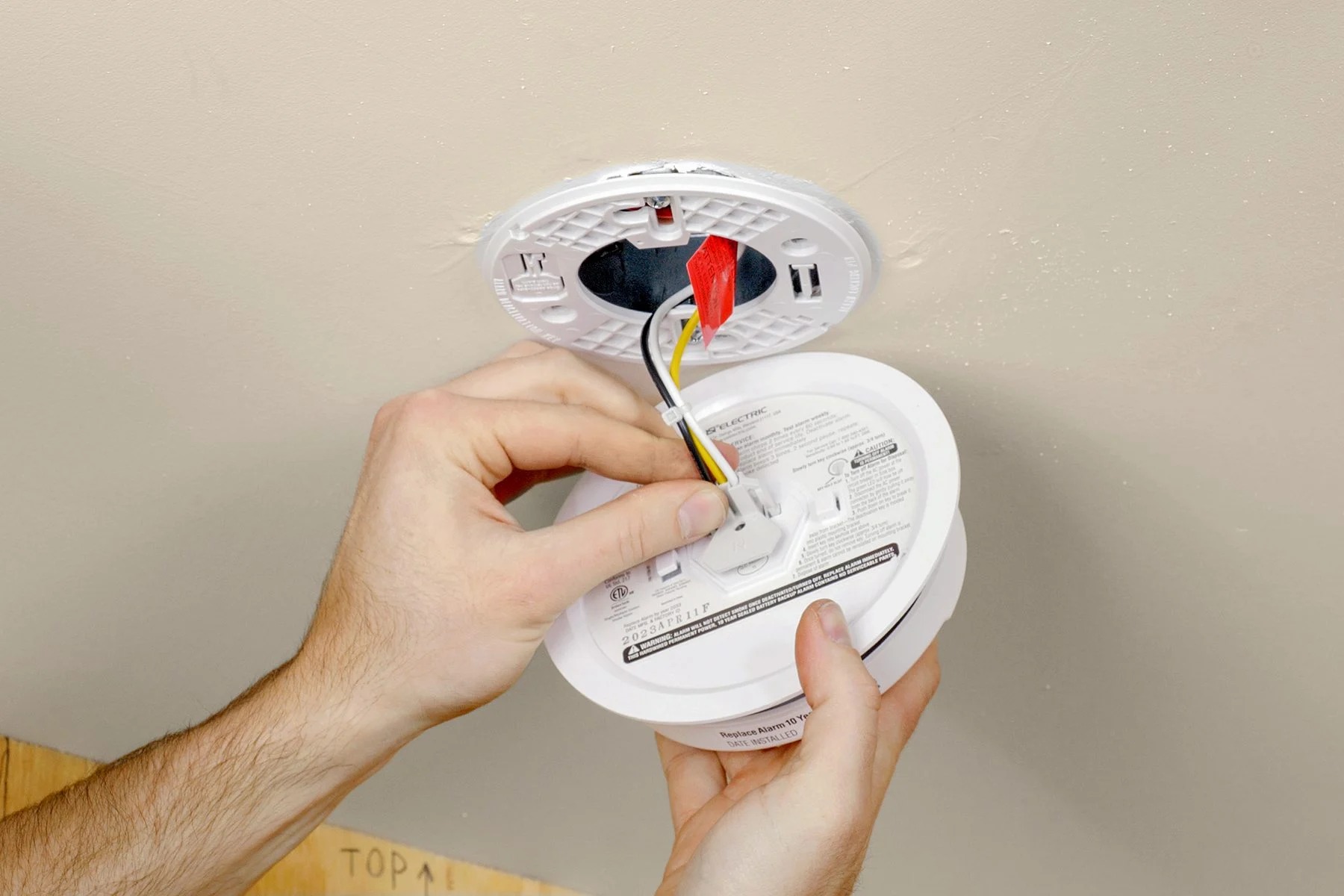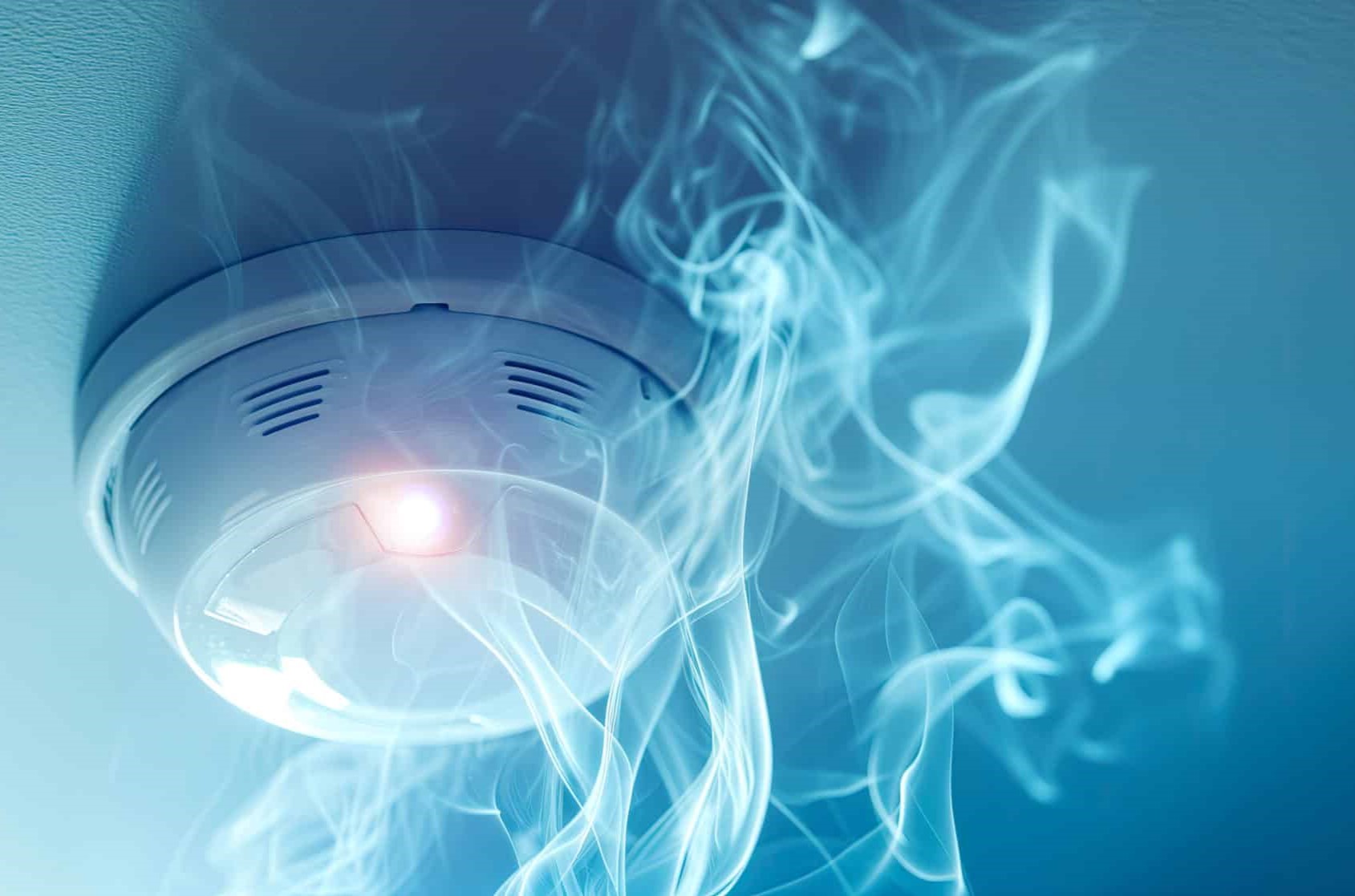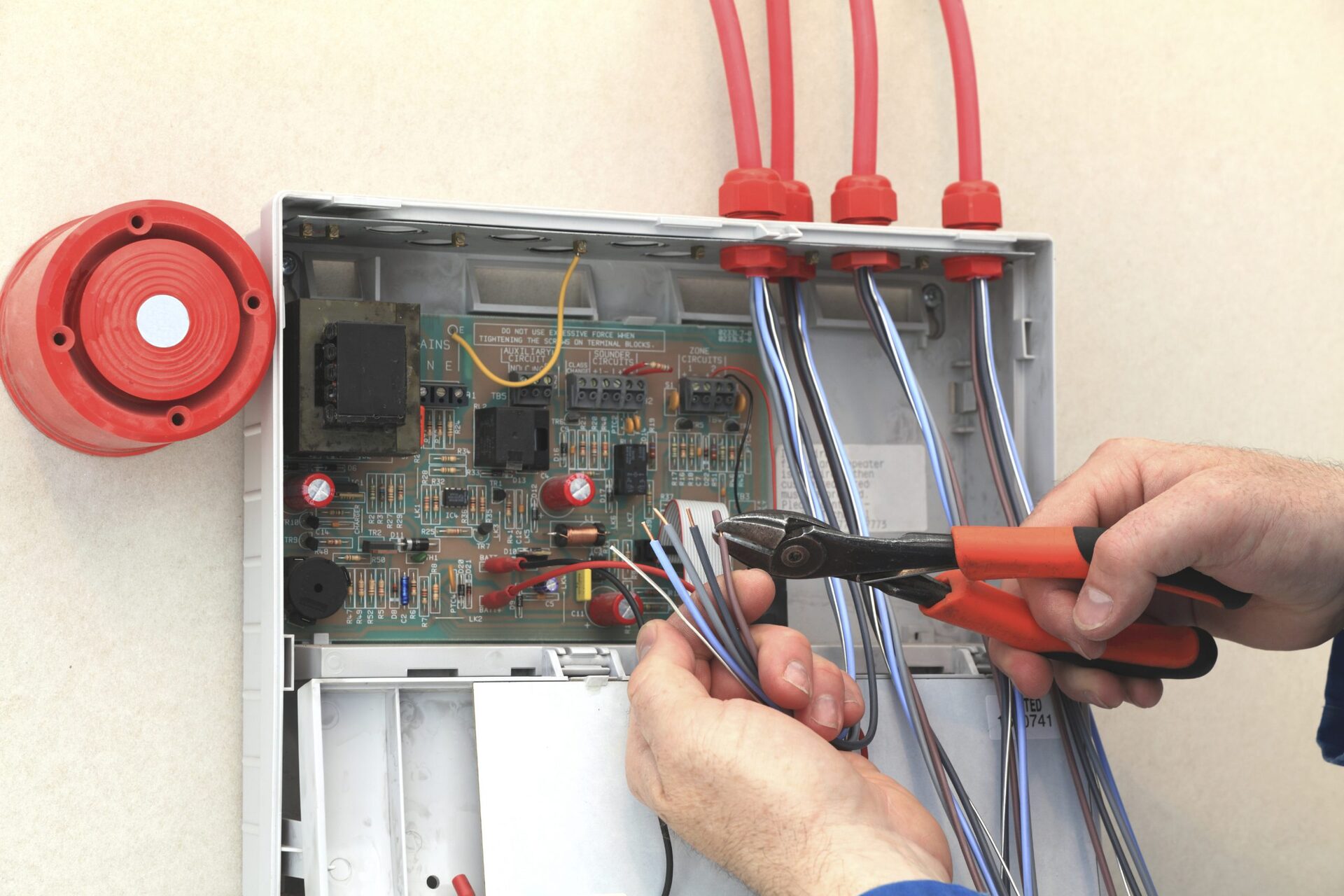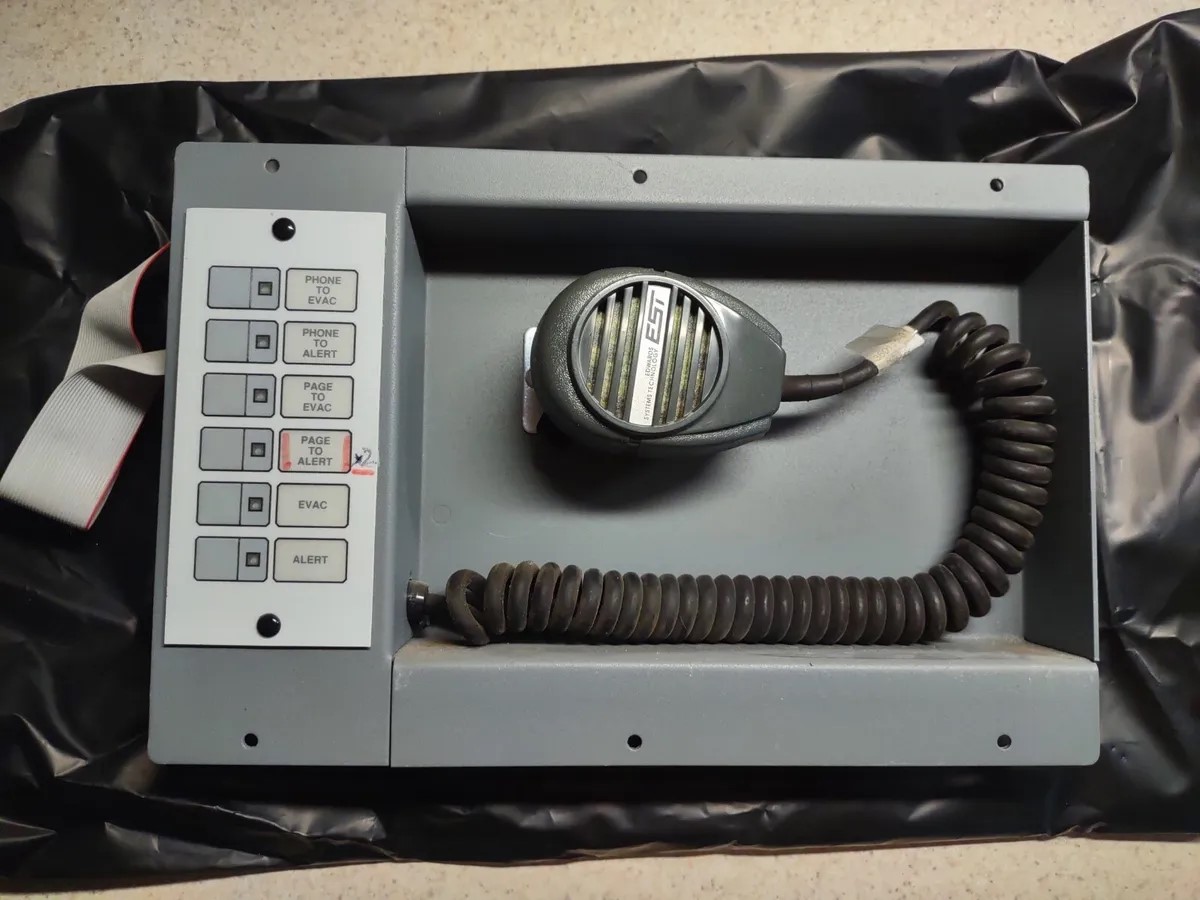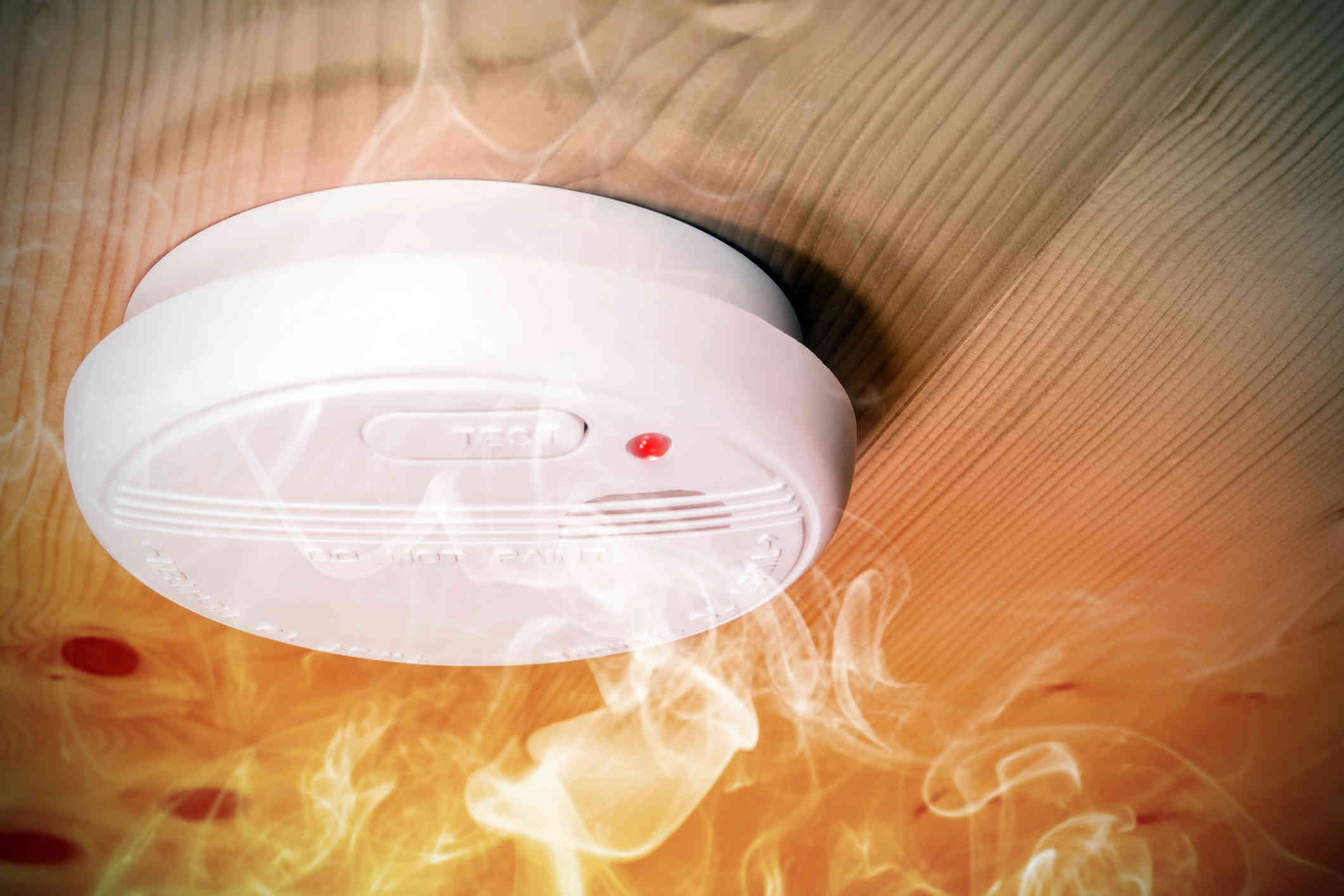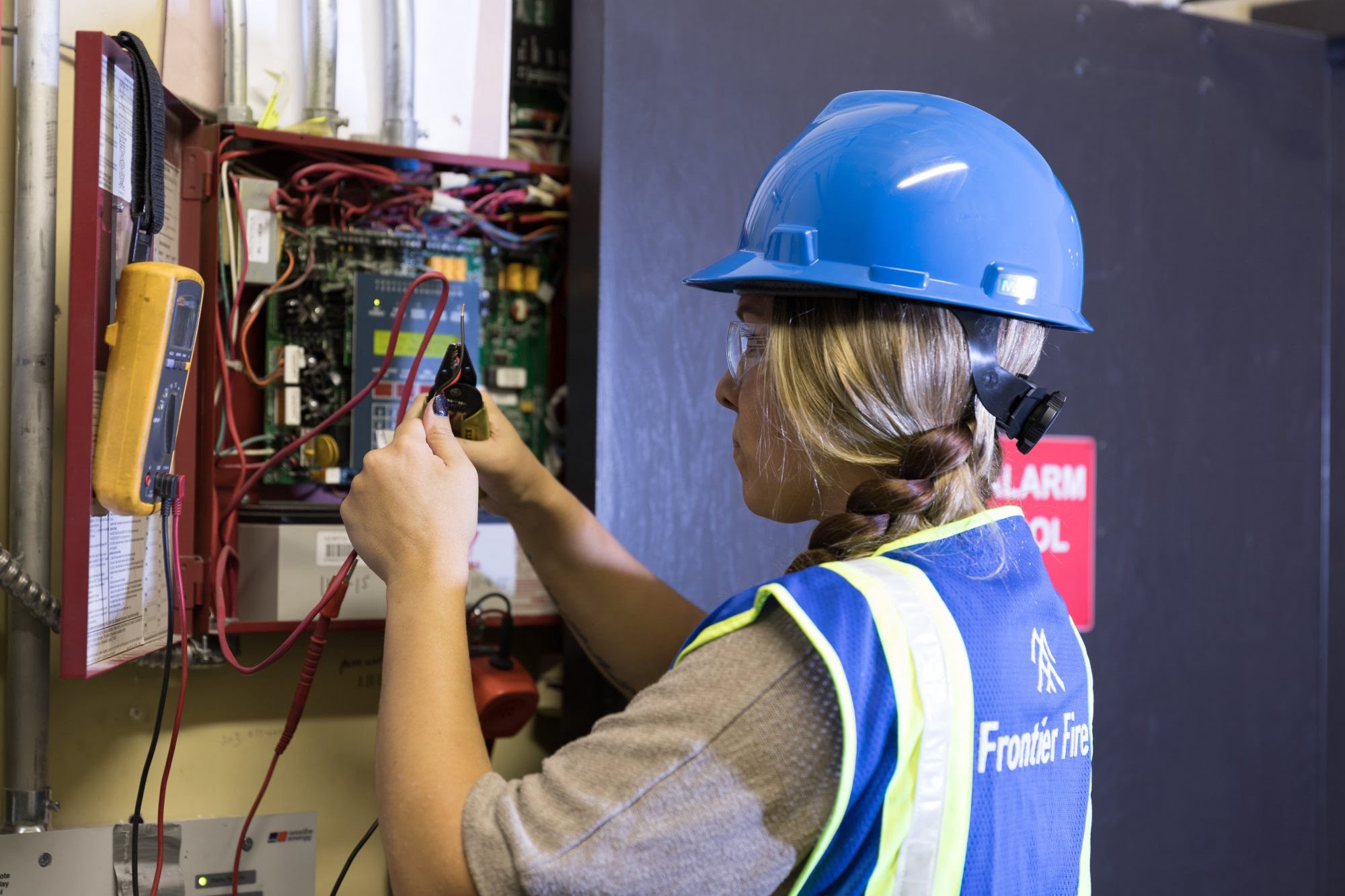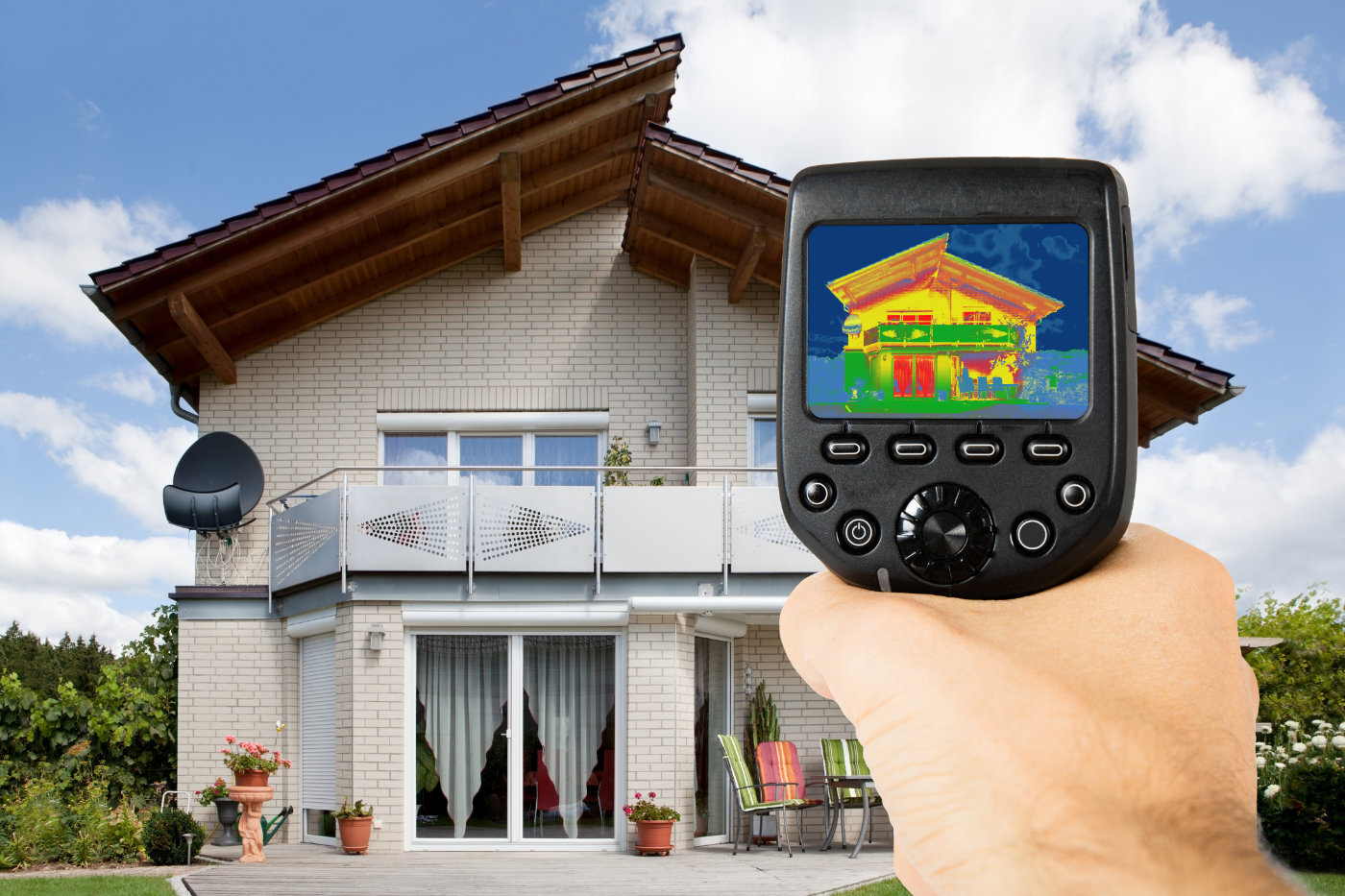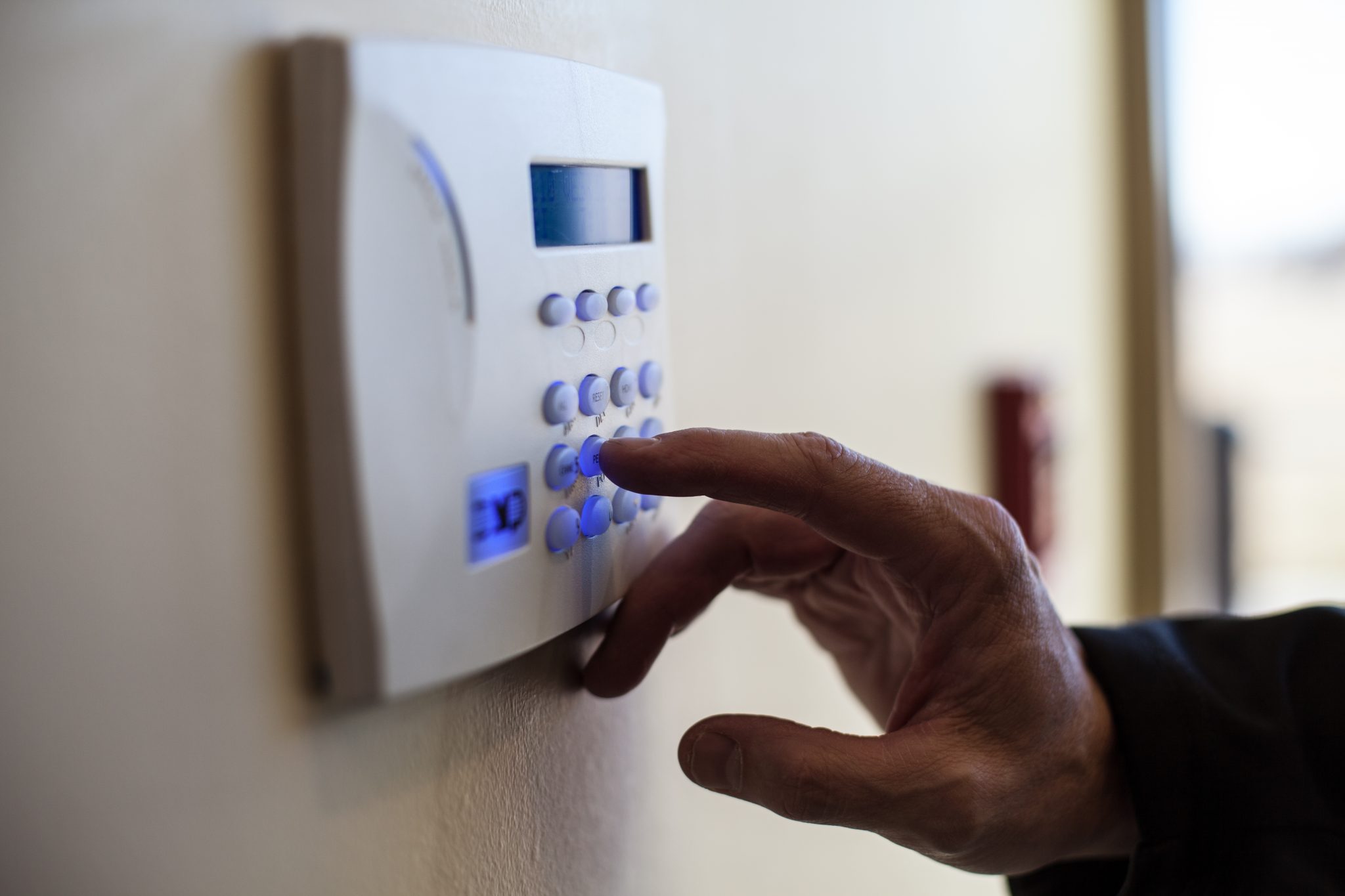Home>Home Security and Surveillance>How Long Should Records Be Maintained For Fire Detection And Alarm Systems?
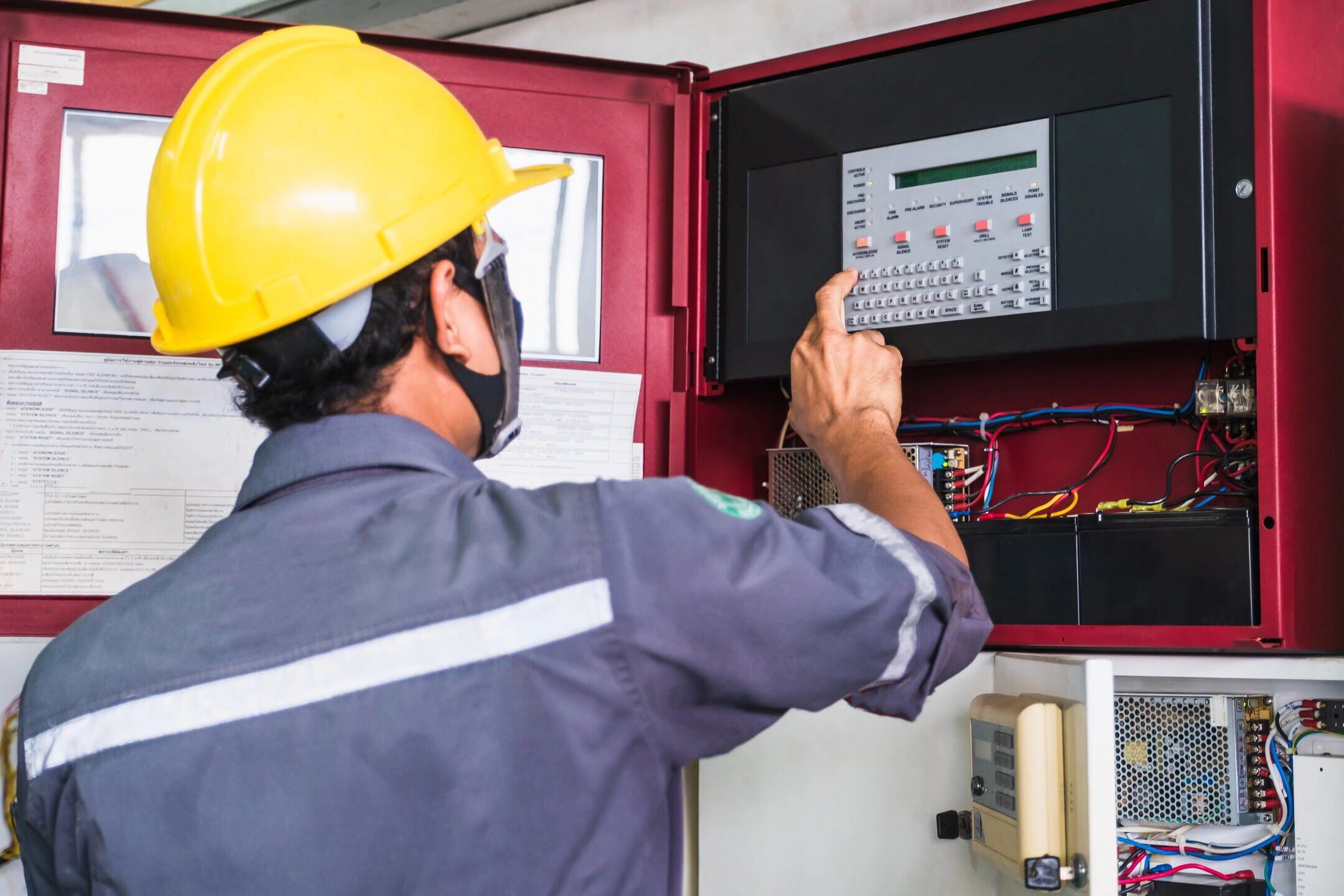

Home Security and Surveillance
How Long Should Records Be Maintained For Fire Detection And Alarm Systems?
Modified: March 6, 2024
Learn about the ideal duration for maintaining fire detection and alarm system records. Discover the importance of home security and surveillance in protecting your property.
(Many of the links in this article redirect to a specific reviewed product. Your purchase of these products through affiliate links helps to generate commission for Storables.com, at no extra cost. Learn more)
Introduction
Welcome to the world of home security and surveillance! In today’s fast-paced society, ensuring the safety and well-being of our homes and loved ones has become a top priority. With advancements in technology, the options for home security and surveillance systems have expanded, providing homeowners with a peace of mind like never before.
One crucial aspect of home security and surveillance systems is the proper maintenance of records. Documentation plays a vital role in not only ensuring compliance with legal and regulatory requirements but also in monitoring the effectiveness and performance of these systems.
In this comprehensive guide, we will delve into the world of record keeping for fire detection and alarm systems, specifically focusing on the question of how long these records should be maintained. By understanding and adhering to these record retention guidelines, homeowners can ensure maximum protection and security for their homes.
Key Takeaways:
- Keep records of fire detection and alarm systems for at least 3 years to comply with regulations and ensure system reliability and effectiveness. It’s crucial for safety and peace of mind.
- Follow best practices like consistent documentation, regular updates, and secure storage to maintain accurate and organized records for fire detection and alarm systems. This ensures compliance and enhances home security.
Regulatory Requirements for Record Keeping
When it comes to record keeping for fire detection and alarm systems, there are several regulatory requirements that homeowners and system operators must adhere to. These requirements are in place to ensure that the systems are functioning effectively and that any necessary maintenance or inspections are conducted in a timely manner.
One of the most important regulations to consider is the National Fire Alarm and Signaling Code (NFPA 72), which provides comprehensive guidelines for the installation, maintenance, and testing of fire alarm systems. NFPA 72 specifies the documentation that must be maintained for fire detection and alarm systems, including records of inspections, tests, repairs, and system modifications.
Additionally, local fire codes and ordinances may have their own specific record keeping requirements. It is essential to familiarize yourself with the applicable regulations in your area to ensure compliance.
Another crucial aspect of record keeping is compliance with industry standards and certifications. Many fire alarm system manufacturers and service providers have their own guidelines and procedures for record keeping. Adhering to these standards can not only help ensure the effectiveness and reliability of your system but may also be required for warranty and insurance purposes.
Overall, regulatory requirements for record keeping aim to maintain the integrity and performance of fire detection and alarm systems, as well as provide a clear audit trail of system maintenance and inspections.
Types of Records for Fire Detection and Alarm Systems
When it comes to record keeping for fire detection and alarm systems, there are various types of records that should be maintained to ensure proper documentation. These records serve as a historical reference and provide valuable information about the maintenance, testing, and performance of the system.
Here are some essential types of records that should be maintained:
- Inspection Records: These records document regular inspections of the fire detection and alarm system. They include details such as the date of the inspection, the name of the inspector, any observations or findings, and any necessary actions taken.
- Maintenance Records: These records document any maintenance or repair work carried out on the system. They include details such as the date of the maintenance, the nature of the work performed, parts replaced, and the name of the technician or service provider.
- Testing Records: Regular testing of fire detection and alarm systems is crucial to ensure their proper functioning. Testing records document the date of the test, the specific tests conducted (such as smoke detector sensitivity testing or alarm audibility testing), and the results of the tests.
- Alarm Activation Records: Whenever the fire detection and alarm system is activated, whether due to a fire event or a false alarm, it is essential to document the details of the activation. This includes the date and time of the activation, the reason for the activation, and any response or action taken.
- System Modifications and Upgrades: Any modifications or upgrades made to the fire detection and alarm system should be thoroughly documented. This includes details such as the date of the modification, the specific changes made, and the rationale behind the modifications.
By maintaining these types of records, homeowners can have a comprehensive overview of the maintenance and performance of their fire detection and alarm systems. This documentation is not only useful for compliance purposes but also provides valuable information in the event of an incident or system malfunction.
Record Retention Periods for Fire Detection and Alarm Systems
When it comes to record retention for fire detection and alarm systems, it is important to have a clear understanding of how long different types of records should be maintained. The retention periods can vary based on regulatory requirements, industry standards, and the specific needs of the homeowner or system operator.
Here are some general guidelines regarding the retention periods for different types of records:
- Inspection Records: Typically, inspection records should be retained for a period of at least three years. This ensures that there is a comprehensive history of regular inspections, providing evidence of compliance and system maintenance.
- Maintenance Records: Maintenance records should also be retained for a minimum of three years. These records demonstrate that the fire detection and alarm system has been properly maintained and serviced, ensuring its reliability and effectiveness.
- Testing Records: Testing records, including results of various tests conducted on the system, should be retained for at least three years. This allows for a clear record of the performance and functionality of the system over time.
- Alarm Activation Records: Records of alarm activations, whether due to fire incidents or false alarms, should be retained for a minimum of three years. This documentation can be valuable for analyzing patterns, identifying potential issues, and ensuring appropriate response protocols.
- System Modifications and Upgrades: Records of system modifications and upgrades should be maintained for the entire lifespan of the fire detection and alarm system. This includes documentation of any changes made, including the date and nature of the modification, for as long as the system is in operation.
It is important to note that the above retention periods are general guidelines and may vary depending on applicable regulations and standards. Some jurisdictions or specific industry requirements may have longer retention periods. Therefore, it is advisable to consult local fire codes, NFPA 72, and any other relevant regulations to ensure compliance with the specific retention periods in your area.
By following the recommended record retention periods, homeowners can demonstrate compliance, have a comprehensive system history, and ensure that important documentation is available for future reference or audits.
Records for fire detection and alarm systems should be maintained for at least the lifetime of the system. This includes installation, maintenance, testing, and any modifications.
Importance of Proper Record Keeping for Fire Detection and Alarm Systems
Proper record keeping for fire detection and alarm systems is of utmost importance for several reasons. It not only ensures compliance with regulatory requirements but also plays a significant role in enhancing the overall effectiveness and reliability of the system.
Here are some key reasons why proper record keeping is crucial:
1. Compliance: Maintaining accurate and up-to-date records is essential for compliance with local fire codes, industry standards, and regulations such as NFPA 72. Compliance demonstrates that the fire detection and alarm system has been installed, inspected, tested, and maintained according to the required guidelines, helping homeowners avoid penalties and legal issues.
2. System Performance & Maintenance: Regular inspections, maintenance, and testing are vital to ensure the proper functioning of fire detection and alarm systems. By keeping detailed records of these activities, homeowners can track the performance of the system over time, identify any patterns or recurring issues, and take appropriate action for repairs or replacements. This proactive approach helps prevent system failures and ensures that the system operates optimally when needed most.
3. Liability Protection: In the unfortunate event of a fire, having thorough documentation of inspections, maintenance, and testing can be crucial for liability protection. Accurate records can demonstrate that due diligence was taken in maintaining and monitoring the system, and can serve as evidence in case of any legal disputes or insurance claims.
4. Audit Trail & Historical Reference: Keeping records provides an audit trail and historical reference of all activities related to the fire detection and alarm system. This information is invaluable in case an incident occurs or if there is a need to investigate any system malfunctions, false alarms, or maintenance issues. It allows for a thorough analysis of the system’s performance, helping identify recurring problems and implementing appropriate corrective measures.
5. Warranty & Insurance Requirements: Many fire alarm system manufacturers and insurance providers have specific maintenance and record keeping requirements in order to maintain warranty coverage and insurance policies. By adhering to these requirements and keeping proper records, homeowners can ensure that they receive the full benefits and coverage provided by warranties and insurance policies.
Overall, proper record keeping for fire detection and alarm systems is essential for compliance, system performance, liability protection, audit trail purposes, and warranty/insurance requirements. It is a proactive approach that promotes safety, security, and peace of mind for homeowners and their properties.
Read more: Who Designs Fire Alarm Systems
Best Practices for Record Keeping
To ensure effective record keeping for fire detection and alarm systems, it is important to follow best practices that help establish a systematic and organized approach. These practices not only ensure compliance but also facilitate easy access to important information when needed. Here are some best practices to consider:
- Consistent Documentation: Maintain a standardized format for recording information across all types of records. This promotes consistency and helps in the easy retrieval of information when required. Include essential details such as dates, names, descriptions of activities, and any significant observations or findings.
- Regular Updates: Keep records updated in real-time or as soon as possible after each activity or event. Delayed or postponed documentation can lead to information gaps and a loss of accuracy. Promptly record inspection results, maintenance actions, test outcomes, and any system modifications or upgrades.
- Secure Storage: Store records in a secure and accessible location, preferably in digital format. This helps protect the integrity of the records and ensures they are readily available for review or audits. Implement appropriate backup and data protection measures to safeguard against loss or corruption of records.
- Organized Filing System: Establish a systematic filing system for physical records, ensuring they are properly labeled and sorted by type, date, or any other relevant criteria. For digital records, use a logical folder structure and file naming conventions that are easy to navigate and search.
- Retention Schedule: Develop a record retention schedule that aligns with regulatory requirements, industry standards, and the specific needs of your fire detection and alarm system. Clearly define the retention periods for each type of record and ensure they are followed consistently.
- Regular Auditing: Conduct periodic audits of your record keeping practices to ensure compliance and identify any areas for improvement. This helps maintain the quality and accuracy of the records and can uncover any potential issues or discrepancies that need attention.
- Training and Documentation: Provide proper training to personnel involved in record keeping, emphasizing the importance of accurate and thorough documentation. Establish clear guidelines and procedures for record keeping and ensure that all individuals responsible for maintaining records understand and follow them.
- Integration of Record Keeping: Explore the use of integrated software or management systems that streamline record keeping processes. These systems can automate tasks, provide reminders for inspections and tests, and generate comprehensive reports, reducing the risk of human error and facilitating efficient record management.
By implementing these best practices, homeowners can establish a robust record keeping system for their fire detection and alarm systems. This enables smooth operations, ensures compliance, and provides a solid foundation for maintaining the safety and security of their homes.
Conclusion
Proper record keeping for fire detection and alarm systems is a critical aspect of ensuring the safety and security of your home. By maintaining accurate and up-to-date records, homeowners can not only demonstrate compliance with regulatory requirements but also have a comprehensive history of inspections, maintenance, testing, and system performance. This documentation serves as an audit trail, liability protection, and a valuable reference in case of incidents or system malfunctions.
Regulatory requirements, such as NFPA 72, outline the necessary types of records that should be maintained, including inspection records, maintenance records, testing records, alarm activation records, and system modifications/upgrades. It is important to adhere to the recommended record retention periods, typically a minimum of three years, to meet compliance expectations.
Proper record keeping offers several benefits, including compliance, enhanced system performance and maintenance, liability protection, audit trail purposes, and meeting warranty and insurance requirements. Following best practices such as consistent documentation, regular updates, secure storage, organized filing systems, and regular auditing helps establish a systematic and efficient record keeping process.
Remember, record keeping is not just a regulatory obligation; it is an essential tool for monitoring and maintaining the reliability and effectiveness of your fire detection and alarm system. By investing time and effort in proper record keeping, homeowners can ensure the maximum protection and security of their homes and loved ones.
So, start implementing these record keeping practices today and take control of the safety and security of your home!
Frequently Asked Questions about How Long Should Records Be Maintained For Fire Detection And Alarm Systems?
Was this page helpful?
At Storables.com, we guarantee accurate and reliable information. Our content, validated by Expert Board Contributors, is crafted following stringent Editorial Policies. We're committed to providing you with well-researched, expert-backed insights for all your informational needs.
